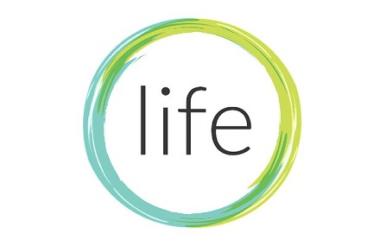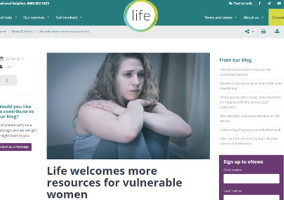A recent campaign to get government to pull funding from the charity Life leaves a bad taste in the mouth, says David Ainsworth.
We recently carried an article about a charity which has been campaigning on an issue it feels passionately about, as do many of its supporters. The issue is controversial and difficult, but important to many people.
The charity recently received a government grant, but its opponents have called for the grant decision to be reviewed, and have set up an email campaign designed to suggest that government money should not go to those who are campaigning on this controversial issue.
What’s unusual is that the campaign comes from another charities.
The charity under fire is Life, an organisation which is opposed to abortion. The British Pregnancy Advice Service has started a campaign to have Life stripped of its grant, and more than 10,000 emails have been sent to Rob Wilson, minister for civil society, as a result.
I don’t agree with Life, and on one basic level I do agree with BPAS. I’d rather Life hadn’t got a government grant. But Life hasn't got the grant to campaign. It's purely for service delivery. So any argument against them getting the money has to be based solely on the quality of their provision.
You can’t argue they shouldn’t get money because you don’t like their opinions. You can’t choose who gets to speak out, or it isn’t freedom of speech.
BPAS does, to be fair, level fairly severe criticism at Life's services as well. And it does talk about the fact that Life has a right to campaign. But the meat of the argument is that Life's anti-abortion stance makes them unfit to receive public money.
So BPAS does not argue that Life should not be allowed to speak out. But it does say, in effect, that Life should be punished or ostracised for doing so. That is not much better.
The problem is that Life advocates a point of view which many people in this country, rightly or wrongly, believe to be correct. Even if they are on the wrong side of history, it is not acceptable to simply demand they are no-platformed.
Quite apart from the moral element, it sets a bad precedent. If you do this to them, it will be difficult to complain when the government does the same to you, next time somebody in power happens not to like your point of view.
We’ve all just spent the last year jumping up and down saying that you should be able to speak out for what you believe, even if you are funded to deliver services, after the government tried to include anti-advocacy clauses in contracts.
So I think we have to stand up for Life and against those who want to silence them.
This is obviously a troubling and difficult area. Most people agree that other people shouldn’t be allowed to say certain things - racism, inciting violence, and so on. Civilisation is a consensual business, and we have to abide by its rules to a certain extent, or we will not be able to interact effectively with others. Social history has been a constant dance between conformity and tolerance. Sometimes it is acceptable and right to say that government should not fund people who say certain things.
But the thing is that too often this has meant that people who don’t agree with the prevailing view have been pushed down, squeezed in, and made to shut up and suffer. Society had demanded too much conformity and not enough tolerance.
It’s worth noting that for the last several thousand years, the anti-abortionists have been considered the moral ones. The pro-choice lobby are the ones who would have been squeezed into silence, as they too often still are in many parts of the world.
In the UK, the wheel has now turned, but it seems dangerous to try to crush opposition to your point of view when you happen to be on top. Especially if you yourself are still calling for freedom to speak out in those places where your viewpoint does not hold sway.
This speaks to a broader point. The charity sector has a powerful voice, and that voice is too often used to shout down dissenting voices and stigmatise those disagree. There are people in the sector who fight to silence those who disagree with them, by labelling them as bigoted or intolerant. They do this at the same time as stridently advocating their own right to campaign.
Of course, it’s a natural human tendency to try to silence those we disagree with, but it sits less comfortably in a sector which preaches tolerance and diversity.
I can’t help thinking that – while it doesn’t seem especially relevant in this particular debate – asking for others to be silenced is also a dangerous tactic when it comes to delivering social change. If you can’t listen, it damages your ability to help others.
Too often the truths we hold to be self-evident turn out not to be true after all, and if we do not destruction-test them, we could easily find ourselves blindly believing in lies. History is littered with examples of people who engaged in harmful and counterproductive activities, often directed towards those they wished to help, because they slavishly followed some overarching set of social principles which did not allow them to look honestly at causes and events.
I say again that in my view, Life are wrong. They are campaigning to force others to follow their own morality. Their attitudes would compel vulnerable women to raise or abandon unwanted children.
But that still doesn’t mean they shouldn’t be allowed to speak.
Related articles










